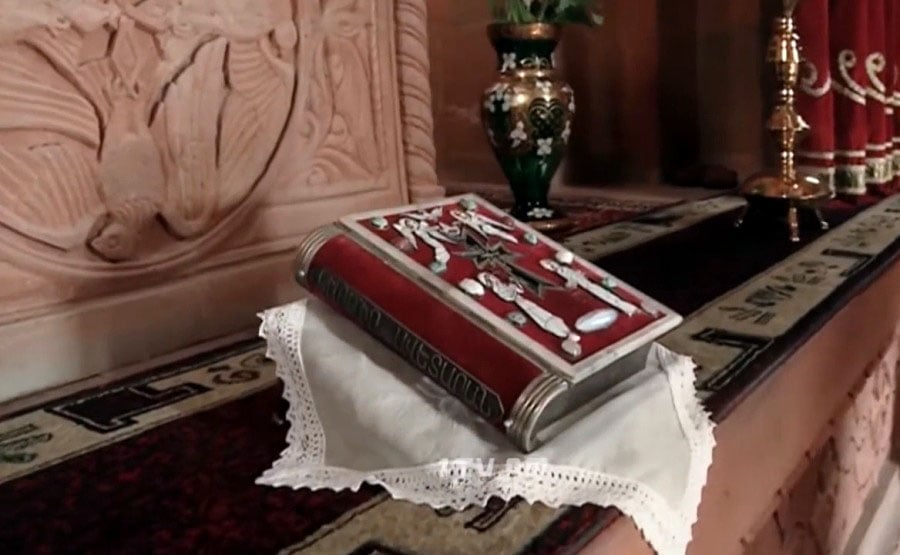Is that even possible?
Whenever I speak or write about the Bible, there almost always appear some of the more “enlightened” users who rush to “teach me a lesson,” reminding me that this book was written by Jews, and therefore Christianity is a religion invented by the Jews, which one should not adhere to. In earlier times, ordinary people here were mostly anti-Turkish, while today—largely not without the encouragement of the current authorities—they have become anti-Russian. Yet there is another stratum of potential racists who consider themselves so well-read that they turn out to be anti-Semites.
Any form of racism always contains an element of ignorance. First of all, let me say that the Jews have written many books. For example, the Austrian Jewish writer Franz Werfel authored The Forty Days of Musa Dagh. But as for the Bible, it was not written by Jews—because that book was not written by men at all. A separate question, of course, is the languages in which the biblical texts have reached us. According to scholars, there are three: Hebrew, Aramaic, and Ancient Greek (Koine). We Armenians, until the 5th century, mainly relied on Syriac sources, and from the 5th century onward, on Greek ones. But one thing is the language, and quite another—the matter of “authorship.”
Why do I believe that the Bible is “the breath of God,” the Word of God? First and foremost because it contains things that would never occur to the human mind—things that are, in fact, impossible for us to carry out, and often unacceptable. What, for instance, does it mean to “bless those who curse you, do good to those who hate you, and pray for those who persecute you”? Do you truly believe that any mortal, even the holiest of saints, could actually do this? I mean sincerely, not just putting on a show. It is as impossible as moving mountains or raising the dead—but it is a beacon, a light we must strive toward.
Read also
Christian ideas are universal—I would even say cosmic. And since we Armenians, from the earliest centuries of Christianity, embraced these ideas and very quickly made them the foundation of our statehood, it would be simply unreasonable not to draw from such a vast source.
How to do this is, of course, a matter for debate. How can one preserve the status of a secular, democratic state with full freedom of conscience and religion (the existence of which, at least on paper, no one disputes), while at the same time making Christian values not only cultural pillars but also a real basis for governance?
In this regard, I would like to draw attention to an article by political scientist Dr. Arsen Gasparyan, president of the Ex Oriente Union of Orientalists of Armenia, published in Aravot. Its title is deliberately provocative: “The Christian Republic of Armenia: An Alternative Model for the Development of Armenian Statehood.”
That title, naturally, offers ample opportunity to claim that the author wants to create a theocracy. And given the slant of the official propaganda, it is not impossible that among the simple-minded pro-Pashinyan masses under its sway, an impression could form along the lines of “this guy wants the Catholicos to be above our Nikol.”
But in fact, the issue at stake is something else entirely—that the Church should help shape the public moral agenda, strengthen national memory, and serve as a symbol of collective responsibility. The author reminds us that fully modern European states such as Malta and Denmark have such experience.
“The state provides governance and strategic direction, the Church will give our people moral leadership, unity, and love, while the Diaspora will bring global connections and innovation,” the political scientist writes.
One can argue about the practical steps proposed by Arsen Gasparyan. But the idea itself, in my view, is worthy of discussion—if, of course, in today’s atmosphere it is at all possible to discuss any idea.
Aram ABRAHAMYAN
























































